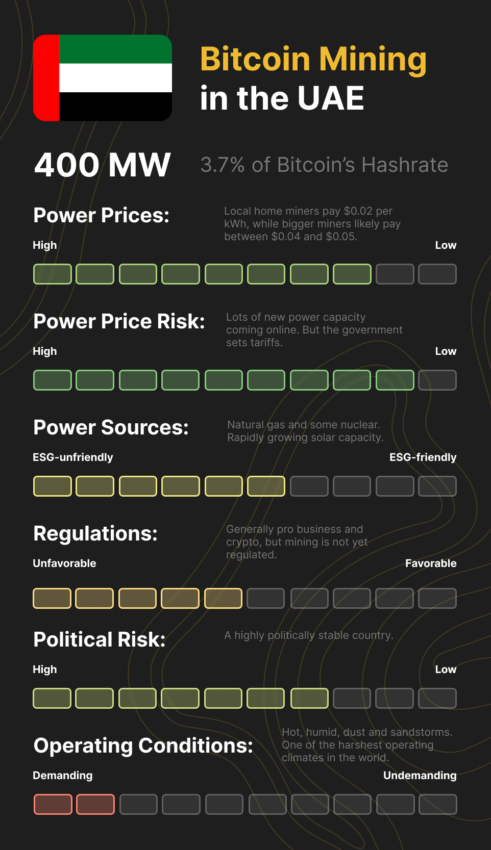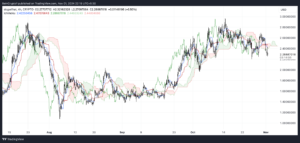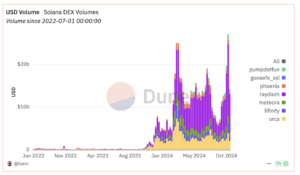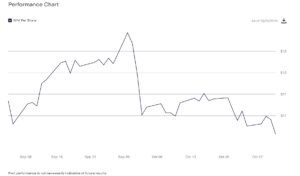
The Abu Dhabi Agriculture and Food Safety Authority has banned cryptocurrency mining on farms.
This regulation addresses the misuse of agricultural land and imposes penalties of up to 10,000 United Arab Emirates Dirhams (approximately $2,722) for violators.
Stricter Regulations to Preserve Agricultural Integrity
Cryptocurrency mining demands substantial computational power and electricity, conflicting with farms’ primary agricultural functions. The government aims to preserve the intended use of agricultural resources. Farmers must avoid cryptocurrency mining activities to prevent hefty fines.

Despite this regulation, the United Arab Emirates (UAE) remains pro-crypto. In 2023, the country emerged as a significant player in the global Bitcoin mining landscape, with a combined Bitcoin mining capacity of around 400 megawatts, contributing approximately 4% of the global Bitcoin hash rate.
The UAE attracts major crypto firms. In May 2023, Chainalysis, a blockchain analytics firm, established its regional headquarters in Dubai. Similarly, Blockdaemon, a provider of institutional infrastructure, expanded its presence in Abu Dhabi, facilitated by the Abu Dhabi Global Market (ADGM), a prominent financial regulator.
Read more: Is Crypto Mining Profitable in 2024?
The UAE’s regulatory landscape balances innovation with compliance. In April 2023, the UAE introduced a crypto business licensing program, promoting regulatory clarity. However, this program is not mandatory for Dubai or the nation’s economic free zones, reflecting a nuanced approach to regulation.
The post Abu Dhabi Prohibits Crypto Mining on Farms appeared first on BeInCrypto.







